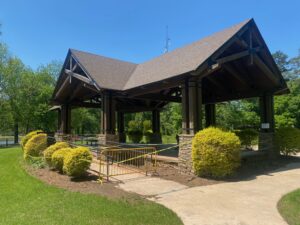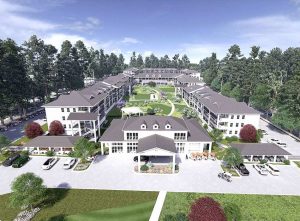Georgia’s highest court has upheld the 2007 annexation that added 782 acres, and just under 1,100 potential new homes, to Peachtree City’s northwestern limits.
The Georgia Supreme Court ruled that a subsequent annexation in 2008 cured the complaint filed by Peachtree City resident David Worley, who filed the suit hoping to overturn the annexation on the basis that the initial annexation created “an island of unincorporated land” which is forbidden under Georgia law.
Because that annexation absorbed the 35-acre unincorporated island as part of the city, Worley’s complaint is technically moot and therefore must be dismissed by the Georgia Court of Appeals, the Supreme Court determined.
The court’s opinion noted that the original trial judge, Brian J. Amero of the Flint Judicial Circuit, properly dismissed the case as being moot in April 2009.
“The city’s 2008 annexation of the unincorporated island by the time the trial court issued its ruling cured the deficiency that existed at the time Worley sought injunctive relief, thereby making moot the question of whether the deficient annexation in 2007 was void,” the Supreme Court wrote in its opinion. “… The trial court in the case at bar, faced with a ‘cured’ annexation, did not err when it determined that Worley’s quest for injunctive relief was moot. Accordingly, the Court of Appeals erred when it reversed the judgment of the trial court.”
Prior to the annexation, the land was zoned in the county for residential development with minimum lot sizes of two acres. But the city approved putting 1,075 homes on the 782 acres, which more than doubled the density on the site. In fact, it may have tripled the density allowed by the county, depending on how much of the land is undevelopable and therefore not included in the net density allowed.
In exchange for the annexation and zoning, developers John Wieland Homes and Levitt and Sons had pledged to complete the extension of MacDuff Parkway from its terminus to Ga. Highway 74 north at the intersection with north Kedron Drive. That project was expected to cost about $10 million because it required construction of a bridge over the CSX railroad.
The extension of MacDuff, however, has been on hold as the housing crisis and economic malaise halted new residential construction projects here and across the country. Since the annexation, developer Levitt and Sons, which had promised 650 homes for “active adults” 55 and over, has gone under. But developer Scarborough Properties has stepped up and pledged to back Levitt’s share of the plan by bringing in a national builder for the “active adult” subdivision, to include a number of amenities for those residents that were pledged by Levitt and Sons.
Worley’s lawsuit sought to overturn the annexation based on the increased cost of the city having to provide services to the area.










Leave a Comment
You must be logged in to post a comment.